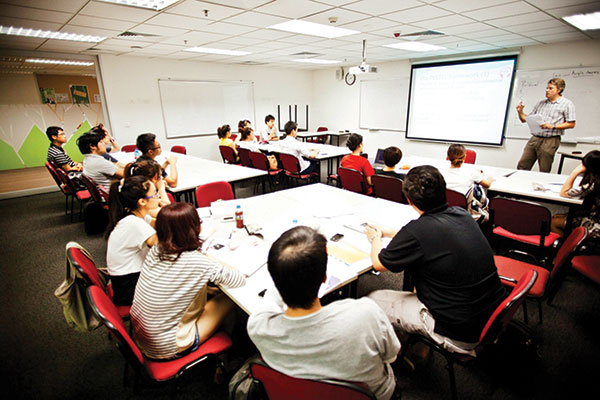RMIT addresses skill shortcomings

Veteran industry insiders provide valuable insight into project management
However, World Bank country director for Vietnam Victoria Kwakwa at an event in Hanoi in October to mark 20 years of co-operation with the country stated that expertise and value were of more concern to Vietnam as a middle income country, rather than the level of cash.
Speaking at the same event, Japanese ambassador to Vietnam, Hiroshi Fukada, said Japan was willing to help provide support including technical co-operation in economic restructuring and human resource development.
Melina Silva, from RMIT’s Project Management programme at the university’s Centre of Commerce and Management echoed these points. Vietnam was facing a chronic shortage of skilled project managers, yet few people were pursuing formal qualifications in this area, she said. One of the problems was that many people lacked a strongly developed understanding of what project management actually meant in a professional context.
“Many think of project management as just being about getting a building finished on time. Actually it is a great deal more than that, and it is relevant to business, government and even the NGO sector,” Silva added.
The ramifications of such shortfalls were recently underlined by a leading Vietnamese economist who warned of the increasing number of white elephant projects in the country.
Chief of the Investment Policy Department under the Central Institute for Economic Management (CIEM) told a recent forum that poor assessments, excessively increased investment costs, and poor maintenance as well as shortcomings in operational protocols were all problems.
“This is just as true in manufacturing, services, charitable endeavours, government service delivery and any other field in which time, cost and performance matter,” Silva said.
RMIT’s Master of Project Management programme is designed to provide students with the knowledge and skills that can be applied across any industry. Most people undertaking the programme are professionals and benefit from the flexible, part-time course schedule.
There are also multiple exit points in the programme where students are eligible for a graduate certificate, graduate diploma, or masters in project management depending on the number of subjects they complete.
RMIT believes one of the keys to success in teaching effective project management is to have the right blend of theoretical knowledge and hands-on expertise. The university utilises senior academic staff members who have significant industry experience in quality assurance, civil engineering, procurement, construction, and information technology.
Duong Nguyen Diem Ha is currently studying on the course and has applied the lessons to her pharmaceuticals industry job. “There were some days when I stand in the boardroom presenting what I learnt over the weekend,” she said.
“I have studied planning, budgeting, risk management and team-working and this directly relates to the implementing and monitoring of clinical trials that I do at work.”
Silva said it was becoming more widely understood that people with a sound understanding of project management could make a real difference.
“Knowledge of best practice in terms of international project management principles is going to position many individuals in leadership positions because it’s going to be increasingly recognised that project success is not something that can be left to chance anymore,” she said.
What the stars mean:
★ Poor ★ ★ Promising ★★★ Good ★★★★ Very good ★★★★★ Exceptional
Latest News
More News
- State corporations poised to drive 2026 growth (February 03, 2026 | 13:58)
- Why high-tech talent will define Vietnam’s growth (February 02, 2026 | 10:47)
- FMCG resilience amid varying storms (February 02, 2026 | 10:00)
- Customs reforms strengthen business confidence, support trade growth (February 01, 2026 | 08:20)
- Vietnam and US to launch sixth trade negotiation round (January 30, 2026 | 15:19)
- Digital publishing emerges as key growth driver in Vietnam (January 30, 2026 | 10:59)
- EVN signs key contract for Tri An hydropower expansion (January 30, 2026 | 10:57)
- Vietnam to lead trade growth in ASEAN (January 29, 2026 | 15:08)
- Carlsberg Vietnam delivers Lunar New Year support in central region (January 28, 2026 | 17:19)
- TikTok penalised $35,000 in Vietnam for consumer protection violations (January 28, 2026 | 17:15)
















 Mobile Version
Mobile Version